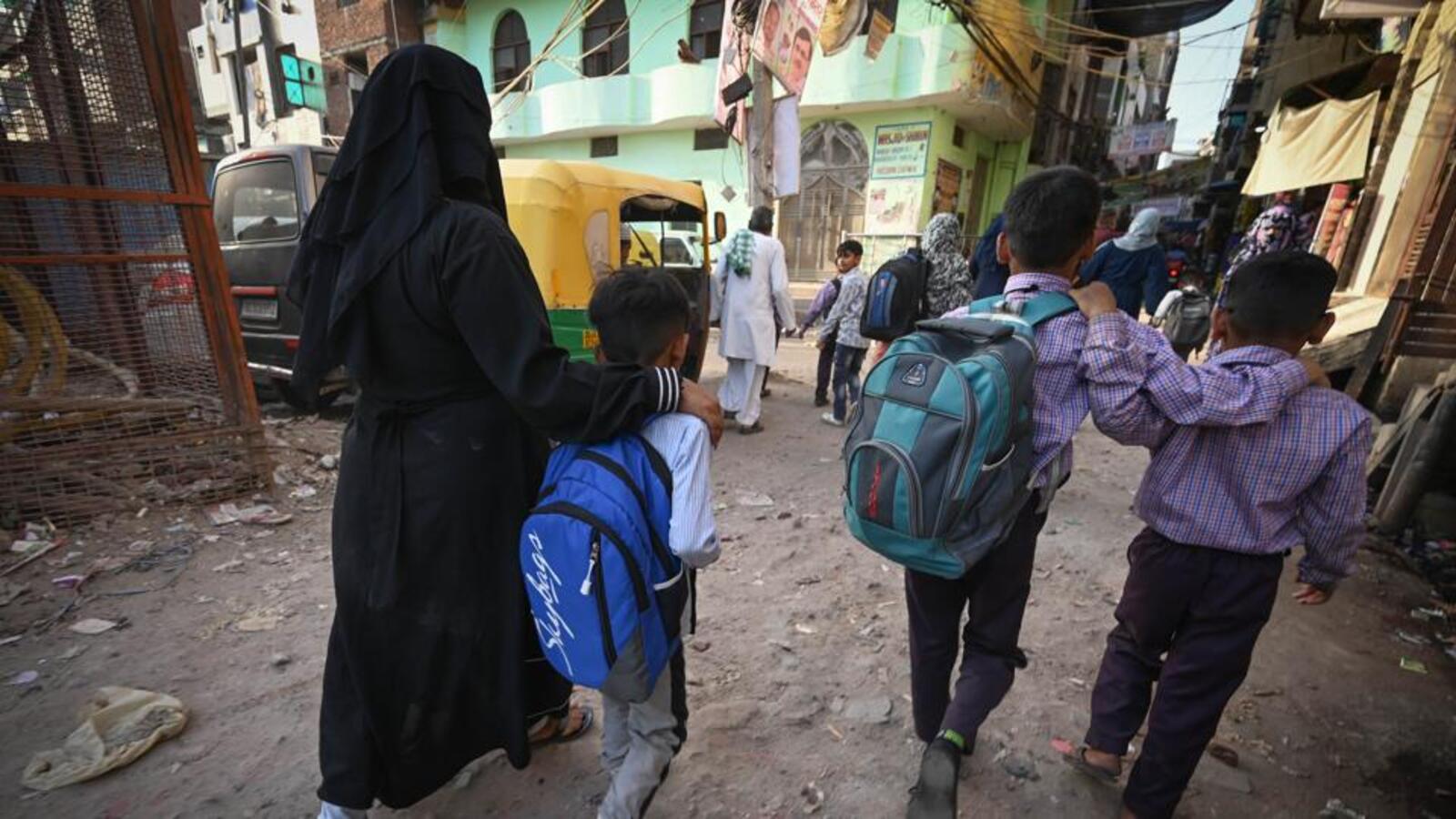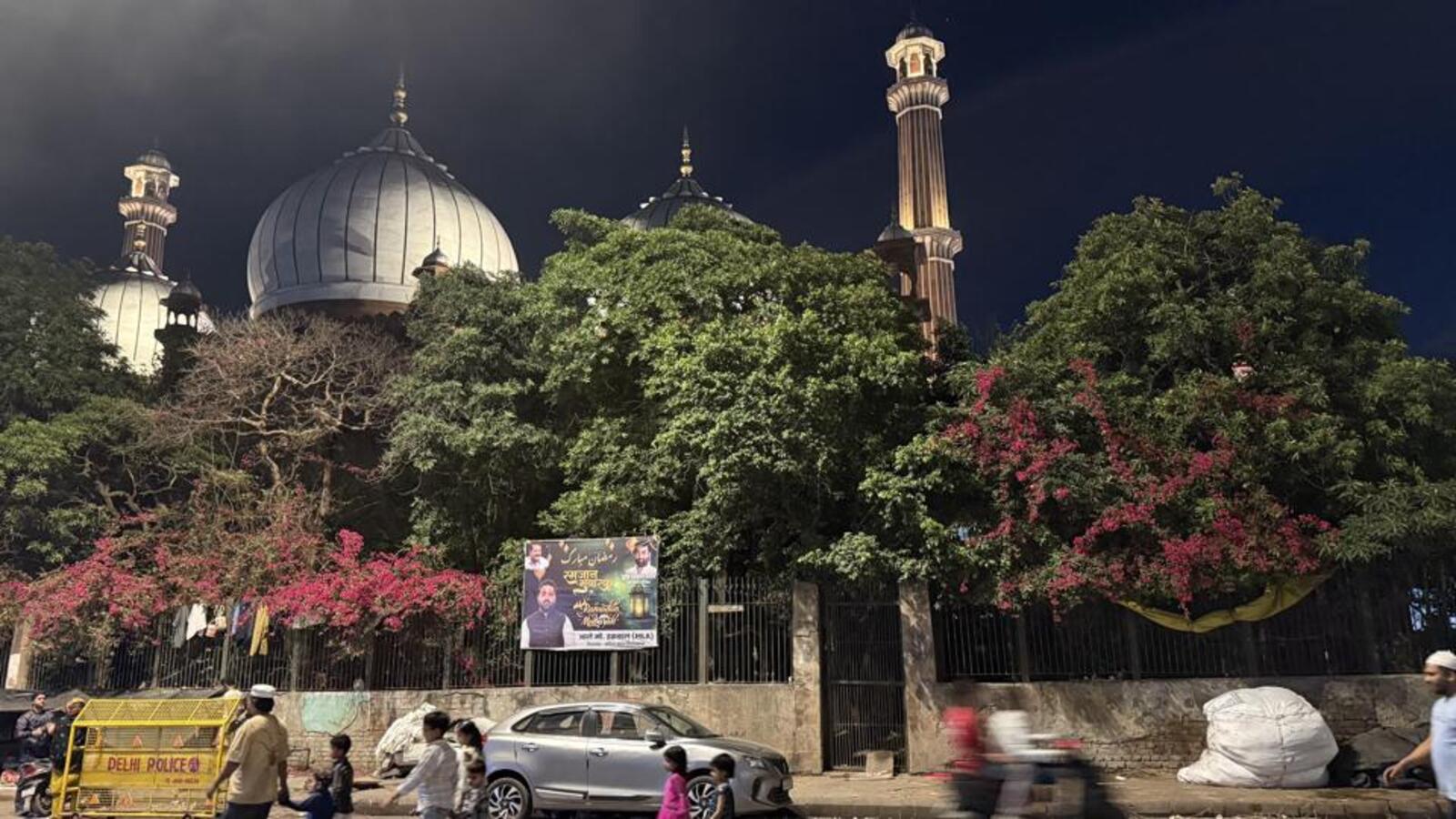At the crack of dawn on Friday, a 12-year-old girl woke up restless and full of anticipation. She had barely slept and skipped breakfast, as excitement and nerves churned in her stomach. It was no ordinary day — it was the first day of school.

But more than that, it was the end of nearly a year-long battle— one that had reached the highest court in the country.
For years, the children of most Rohingya refugees in India had been denied education. Their fight led them to the Supreme Court, and in February 2025, India’s top court ruled in their favour. On Friday, the first day of the new session, 19 Rohingya children, from families settled in a northeast Delhi urban village, walked into a government school for the first time.
“I woke up at 6am, combed my hair, and got ready for school,” she said gleefully after her first day. “Everyone there was so warm. I even made new friends who said they’ll wait for me tomorrow.”
She had no school bag, no uniform, no stationery — only hope and excitement. At lunchtime, she was too overwhelmed to eat.
For years, she had watched neighbourhood girls step out in crisp uniforms, their neatly plaited hair swinging behind them as they made their way to school. She had longed for that moment. Now, it was hers.
Despite her young age, she has lived through horrors beyond imagination — watching family members murdered by a mob, their bodies thrown into a river, before her mother fled with her and her siblings to India. They slept on footpaths, uncertain of where their next meal would come from. A simple school admission for them meant more than just education — it was a doorway to a different future.
A few doors down, a mother of two teared up as she spoke about her five-year-old son’s first day. “The teachers welcomed him like he was their own,” she said. “I have a 10-year-old daughter at another school, but she never feels accepted there. Here, the teacher hugged my son and said she would be like a parent to him. That means everything to me.”
Another father, a painter, was reassured when his daughter was given dal chawal for lunch.
“The school administration is so helpful. They added us to the daughter’s class WhatsApp group and they have even told us we could send home-cooked meals if our children preferred.” His daughter’s first day, he said, went without any hiccup and she was brimming with excitement.
A young boy in the second grade discovered chana halwa at school—something he had never tasted before. “It was so good!” he said, grinning.
For one mother, Friday was a day of both chaos and wonder— all three of her sons stepped into formal schooling for the first time. Used to staying up late watching videos, they obediently went to bed early, eager for the next morning.
Her eldest, usually reserved, mingled with classmates. The middle child was hesitant. But the youngest, a mischievous five-year-old, caused a stir on his very first day in school — he ran away from school on his first day.
“He has always been naughty. He asked the teacher for the way to the toilet, then bolted straight home,” his mother said, laughing. “Now the teachers will make sure he behaves.”
The boy had his own explanation: “How can I study without books? And mummy wasn’t there. Only she teaches me.”
Teething challenges
Despite the joy, the transition has not been seamless. The children had no uniforms, books, or stationery on their first day — government schools provide these, but only after enrolment is settled.
There was also confusion with class placements. A nine-year-old was put in fourth grade, a 12-year-old in sixth, and two five-year-olds in first grade. Parents as well as school administration said that the school will soon “unjumble the mix up” based on age and their current abilities.
“We have admitted these students on the basis of their age in respective classes and after evaluating them, we will settle them in different classes based on their learning abilities,” the school official said. “Our focus is gradual integration so that they don’t feel isolated.”
A small victory, a long way to go
The fight to get these children into school was not easy.
Senior advocate and education activist Ashok Agrawal, who led the legal battle, called the Supreme Court’s ruling a victory for the fundamental right to education.
“We fought this battle for almost one year and finally justice is served, at least for these students,” he said. “Every kid who walks on this soil should have access to good quality education irrespective of their condition.”
Agrawal added that getting these children admitted in school was not easy and there were many obstacles to cross, but he is happy with the court’s directive.
The 12-year-old girl, still brimming with excitement, pulled at her mother’s burqa, asking to be put to bed early. She insisted she had to wake up on time.
There were new friends to meet, new letters to learn, and a new world waiting for her. For the first time in her life, she had another morning to look forward to.









Leave a Reply